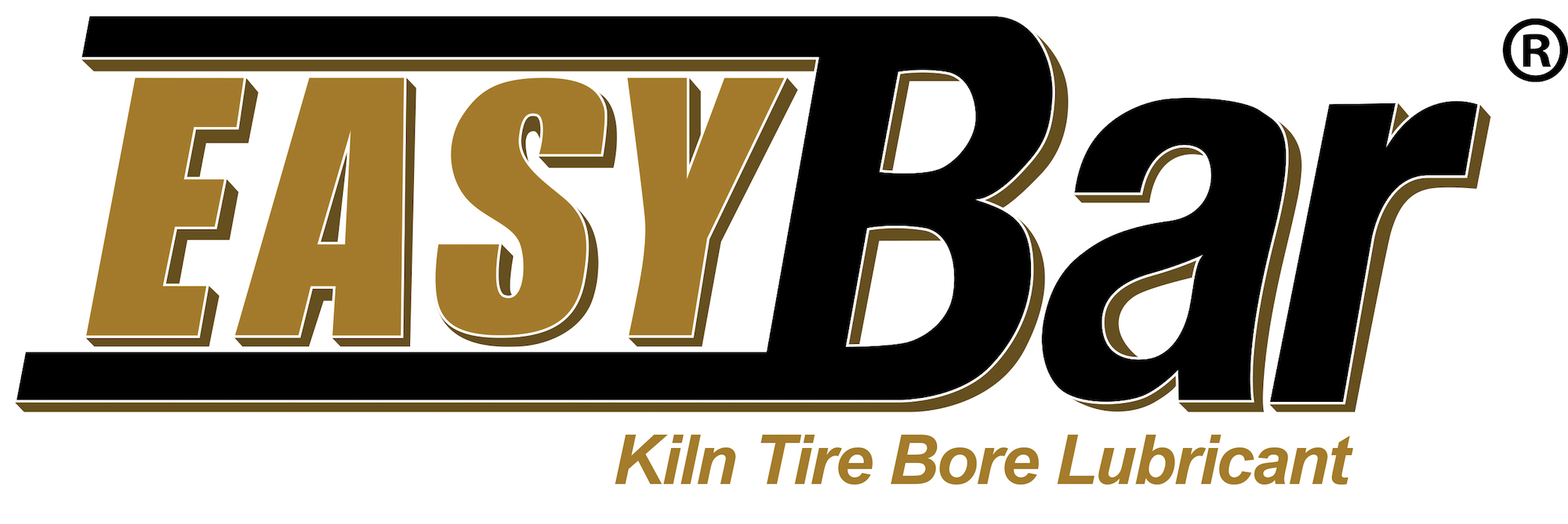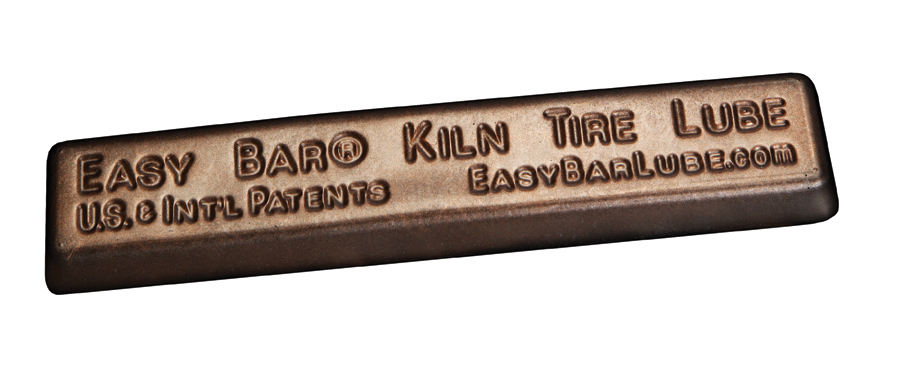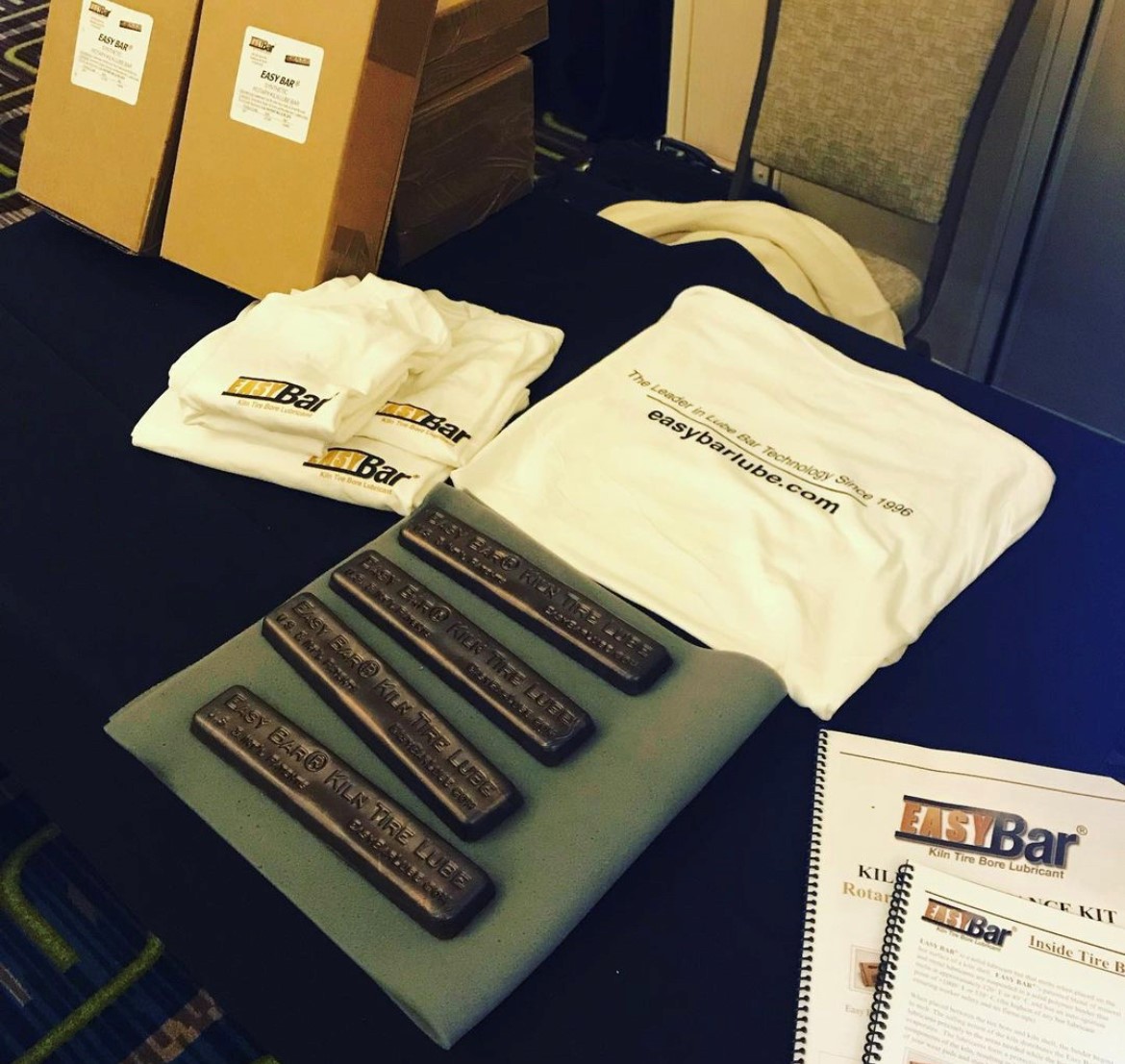Exporter Spotlight: Easy Bar Inc.

Georgia Exporter Spotlight: Easy Bar Inc.
County: Cobb
Industry: Industrial Lubricants
Interviewee Name(s) & Title(s): Clay Lockett, CEO
 Easy Bar Inc. was founded in1995 by my father, Alan Lockett, who was working at the time as a specialty blender of synthetic and petroleum-based lubricants for the power generation industry. In response to requests he was receiving from customers for a new specialty solution product, Alan created Easy Bar Inc. The company manufactures a specialty lubricant for heavy industrial manufacturing industries such as cement, lime, pulp and paper, and chemical, as well as for mining facilities. Easy Bar is a patented lubricant in a bar form, which is inserted into a rotary kiln that helps protect the wear components and makes them last longer.
Easy Bar Inc. was founded in1995 by my father, Alan Lockett, who was working at the time as a specialty blender of synthetic and petroleum-based lubricants for the power generation industry. In response to requests he was receiving from customers for a new specialty solution product, Alan created Easy Bar Inc. The company manufactures a specialty lubricant for heavy industrial manufacturing industries such as cement, lime, pulp and paper, and chemical, as well as for mining facilities. Easy Bar is a patented lubricant in a bar form, which is inserted into a rotary kiln that helps protect the wear components and makes them last longer.
1) How long has your company been exporting?
We’ve been exporting since 2005. After 10 years of domestic sales, interest in our products outside of the U.S. peaked through word of mouth. Also, Alan participated in an ExportGA course held by the International Trade Center of the University of Georgia’s Small Business Development Center (SBDC), which provided Alan with a knowledge base and counseling assistance to help start up and support international growth. I started with the company in 2008 and have always been committed to international growth.
2) What motivated your company to start selling internationally?
We were interested in selling worldwide, not just in the U.S. I saw that the future was to grow outside of the U.S. We had a unique patented product, and the machines for which the products are used were located all over the world. We had international patents already in place when our U.S. patents were filed and approved. So we started to improve our website, translate our marketing materials, and with the help of our state and federal partners, to look for distributors and representatives.
3) What is the biggest lesson your company has learned about exporting?
Companies need to become familiar with harmonization codes and the various exchange rates, duties and taxes from country to country. They have to be cognizant that the landed cost could be two or three times the product cost for the importer and/or end user. Companies have to understand the market and be willing to adjust their pricing to help with market penetration.
4) How has GDEcD’sInternational Trade Team helped your company? OR What outside resources have been helpful in achieving success internationally?
Our state and federal partners like GDEcD, the SBDC and the U.S. Commercial Service (USCS) have been an integral part of our success in exporting and in our international growth. Through them we have learned a lot about, or been introduced to mentors regarding:
- The importance of having an updated website;
- Shipping, logistics, Incoterms, letters of credit, financing;
- The mechanics of exporting, including import duties and taxes; export credit insurance; documentation;
- Partner search services such as the Gold Key of the U.S. Commercial Service and the Business Partner Identification of GDECD.
A small company like ours could never have reached out directly to potential customers or partners without the expertise and assistance of GDEcD and the USCS.
5) What advice do you have for companies that are just starting to export?
- Call GDEcD!
- When looking for potential partners, reps or distributors, a lot of due diligence is required to find the right partner. The due diligence process can be helped by GDEcD’s due diligence services and partner searches. It takes a lot of effort to find out who are proactive sales people vs. just order takers. You want a group that has expertise and established credentials in the industries you’re working in and can see the potential in your products.
- When we were new to exporting we used the FUSE [Featured U.S. Exporter] service of the USCS. Through this service we got a distributor in Spain who is still with us and has expanded his coverage throughout southern Europe.
- Our biggest time commitment with international sales is export documentation and other countries’ regulations and requirements – getting the information and getting it right. With chemical products there can be special regulations and requirements like REACH in Europe, and other countries requiring special forms. It takes dedicated export staff to manage these matters. The last thing you want is to have a shipment stuck in customs because it’s missing one signed piece of paper.
6) What has been your biggest export achievement?
We sold to a mining company in the Ukraine. The company reached out to Easy Bar through our website. The customer sent us a 30-page contract in Russian. We worked with our legal department and with some translation assistance, we worked through all of the details of the proposal. After several discussions we were able to secure a three-year deal with the company. When going into a new market set realistic expectations; don’t expect to be able to sell a container load right away. We were only able to secure this large opportunity due to our brand awareness and expertise in the field. Once your company gets credibility – bulk shipments will be easier. Anything you can do to lower the landed cost (especially shipping costs) will help increase sales and market penetration.
7) Has the global COVID-19 crisis affected your company and your international business? If so, how?
Visiting customers has been difficult; visiting international customers has been impossible due to travel restrictions. Our customers have been deemed essential businesses, so there wasn’t a large downturn in business. We’re seeing an uptick now in 2021.

8) Do you have plans to participate in any virtual trade events such as trade shows or missions while COVID-19 is an issue? Have you already participated in any such virtual events? If so, was the experience beneficial and productive?
We haven’t participated in any virtual trade events yet, but we’re looking into it – especially industrial seminars. Normally we’d give in-person presentations sponsored by various kiln manufacturers at industry seminars on what Easy Bar does and on best lubrication practices. We’ll probably do virtual presentations when scheduled by our customers. Also, via LinkedIn I’ve been connecting to various online preventive maintenance organizations for rotary kilns and participating in presentations with them.
